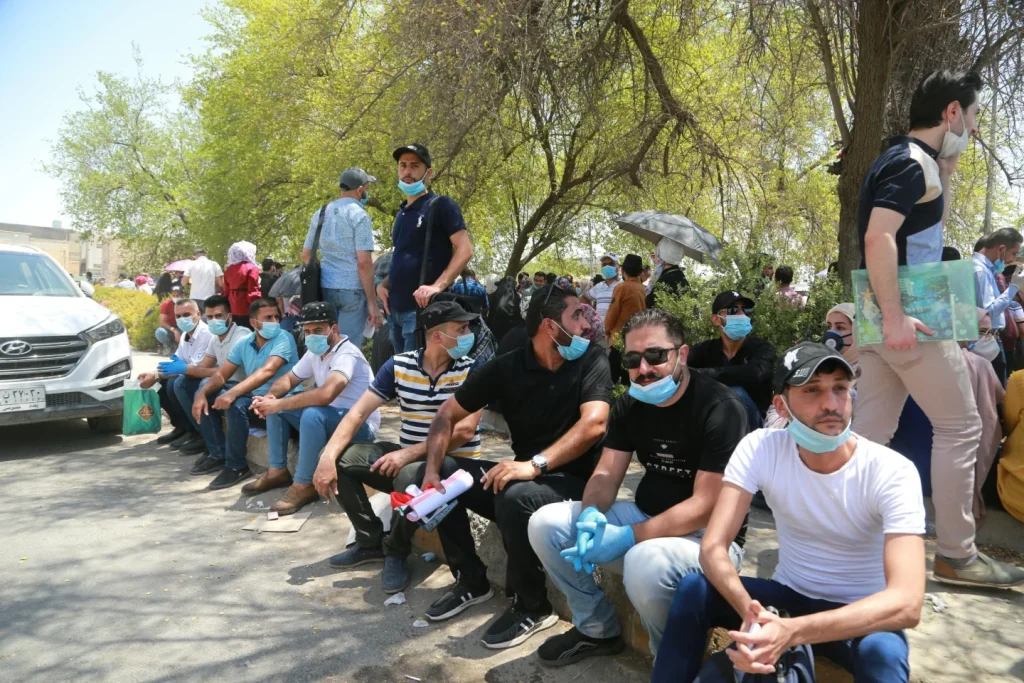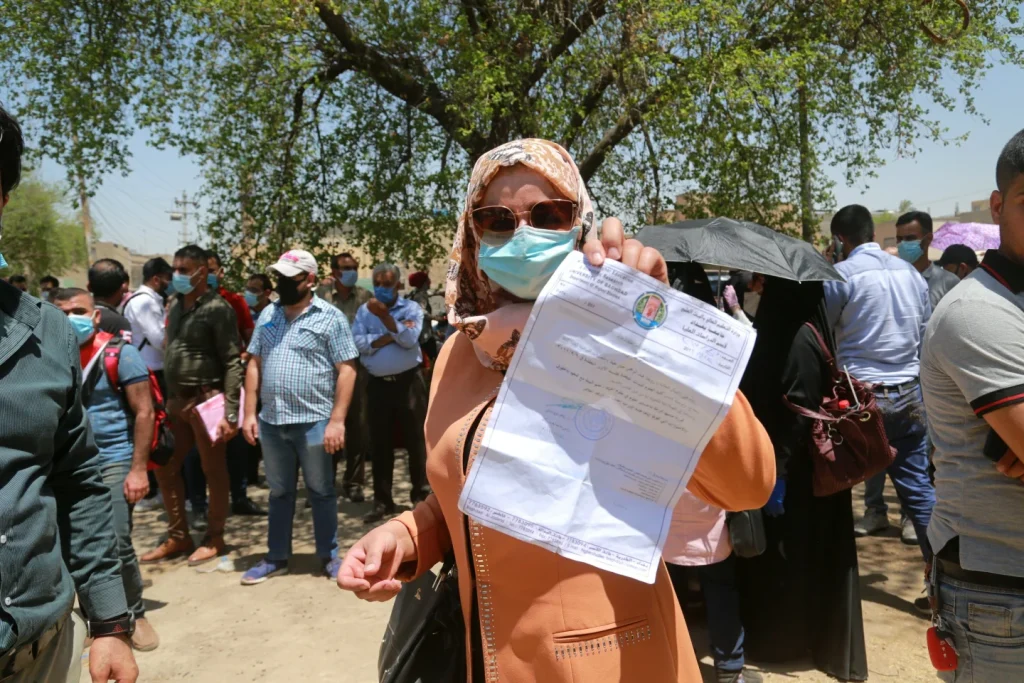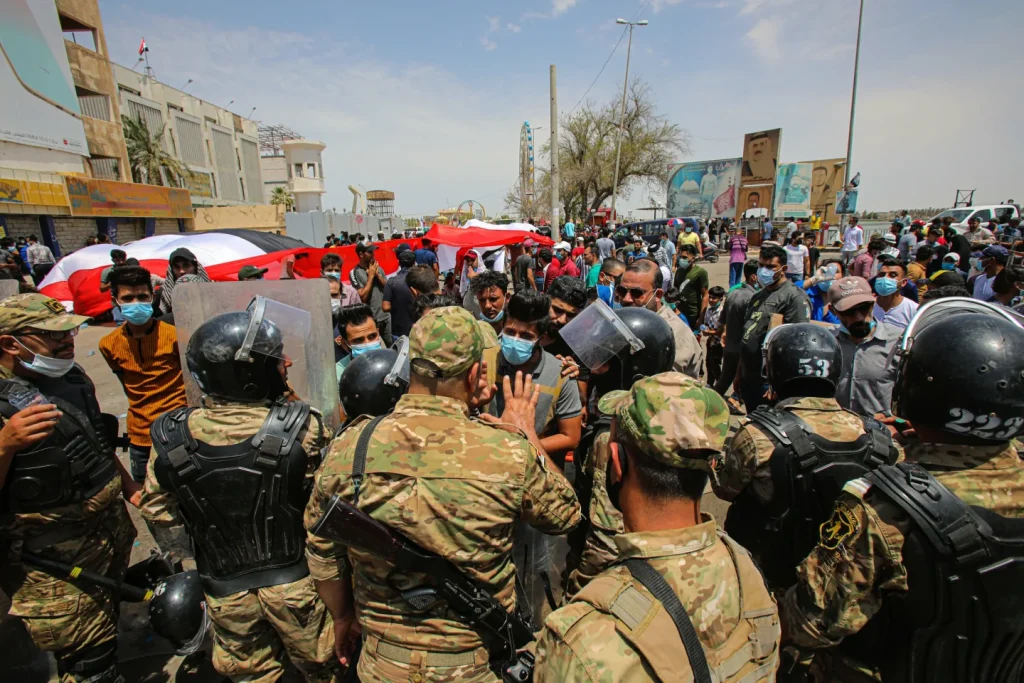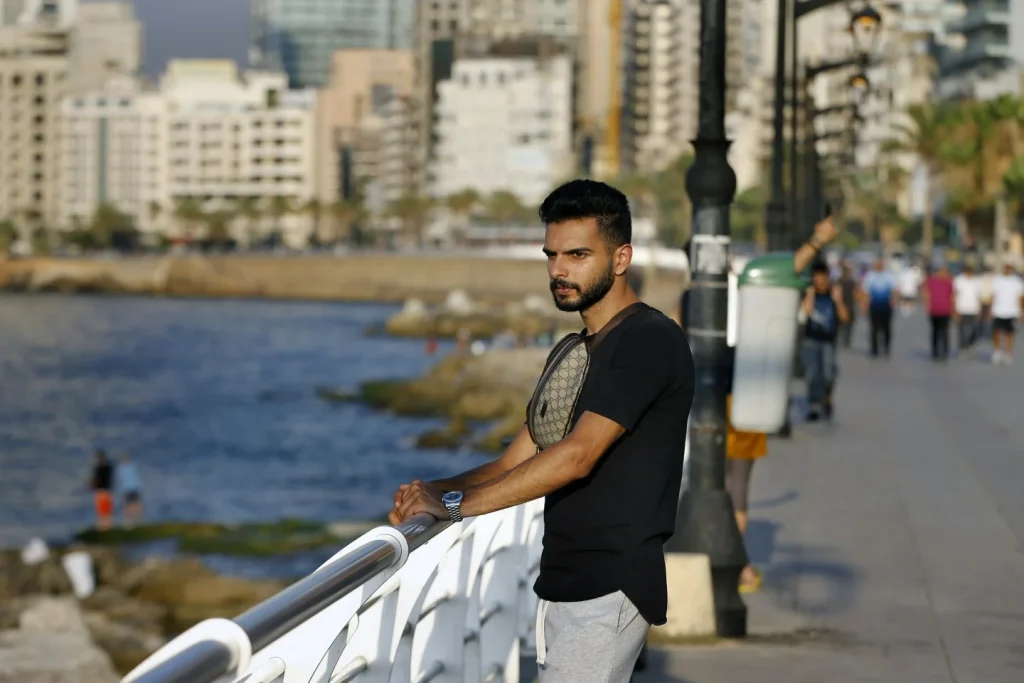The impact of the COVID-19 pandemic on the aspirations and livelihoods of young people in the Middle East, particularly in countries like Iraq, Lebanon, and Syria, has been profound and disheartening.
The story of Sama al-Diwani and Athir Assem, two young individuals whose dreams were shattered by the sudden onset of the pandemic, is emblematic of the struggles faced by millions in the region.
Sama al-Diwani, a 24-year-old with plans to pursue a master’s degree in pharmacy in England, and her partner Athir Assem, who aimed to open a bakery in Iraq, found their ambitions derailed as the world grappled with the spread of the coronavirus.
The closure of borders, economic downturns, and widespread uncertainty brought their plans to a standstill.
Sama’s educational pursuits were put on hold, Athir’s bakery project faced delays, and their financial stability took a significant hit. This narrative of dashed hopes and unforeseen challenges resonates with many young people across the Middle East.
The region’s youth have long been confronted with a myriad of hardships, including wars, displacement, and economic instability.
The pandemic, however, exacerbated these existing difficulties, leaving young adults feeling disillusioned and despondent.

Unlike their counterparts in the West who may hold onto hopes of economic recovery and job reinstatement, many in the Arab world face a bleak reality of crumbling economies and vanishing opportunities.
Cultural norms and societal expectations in the Arab world add an additional layer of pressure on young individuals, particularly males, to secure stable employment, start families, and provide for their loved ones.
The disruption caused by the pandemic has not only jeopardized these traditional pathways but has also heightened concerns about mental health and well-being among the youth population.
Prior to the pandemic, youth unemployment rates in the Arab region were already alarmingly high, with estimates indicating significant disparities compared to global averages.
The shift brought about by COVID-19 further exacerbated these challenges, with a substantial portion of young people now engaged in informal employment sectors that have been severely impacted by the crisis.
Countries like Iraq, Lebanon, and Syria are grappling with unprecedented economic crises, characterized by currency devaluation, hyperinflation, and widespread poverty.
The inability of governments to address systemic issues such as corruption, inadequate services, and job creation has fueled social discontent and unrest, as seen in the protests that erupted in Lebanon and Iraq in recent years.
The road ahead for young people in the Middle East is fraught with uncertainty and hardship. As they navigate the fallout of the pandemic and its far-reaching consequences, the need for comprehensive support systems, economic reforms, and opportunities for meaningful engagement becomes increasingly urgent.

Only through concerted efforts to address the systemic challenges facing the region can the aspirations and potential of its youth be safeguarded and realized.
In conclusion, the plight of young individuals like Sama and Athir serves as a poignant reminder of the resilience and fortitude exhibited by the youth in the face of adversity.
Their stories underscore the profound impact of external crises on personal dreams and societal trajectories, highlighting the pressing need for collective action and sustainable solutions to uplift and empower the next generation in the Middle East.
The current global landscape is witnessing a profound shift in the aspirations and dreams of millions of young individuals who are increasingly looking to leave their home countries in search of better opportunities and a more secure future.
However, the traditional destinations in the West, which have historically been seen as beacons of hope and prosperity, are now becoming less welcoming due to the rising tide of anti-immigration sentiment and the economic challenges facing these nations.
One such individual facing the harsh realities of economic hardship and uncertainty is Wissam al-Sheikh, a 30-year-old former manager at a clothes store in Beirut.
His recent job loss has dealt a severe blow to his family of six, pushing him to contemplate leaving Lebanon in search of greener pastures.
The recent developments in Europe, where leaders have secured a massive recovery fund for their pandemic-hit economies, serve as a stark contrast to the struggles faced by individuals like al-Sheikh in the Middle East.
The story of Amjad Ramadan, a part-time salesperson, reflects the frustration and disillusionment felt by many young people in the region.
The suggestion by politicians to resort to home planting as a means of survival during the crisis is seen as a stark reminder of the lack of viable options for economic stability and growth in their own countries.
The impact of the ongoing economic downturn and armed conflicts in the Arab world is further exacerbated by the projections of a significant increase in poverty levels, affecting millions of individuals and families.
The bleak outlook for the region paints a grim picture for the future prospects of its youth, pushing many to consider leaving their homelands in search of a better life elsewhere.
The personal story of Al-Diwani, an Iraqi pharmacist, sheds light on the challenges faced by individuals who have endured years of war, instability, and upheaval in their home country.
Despite her aspirations to pursue higher education abroad and build a better future with her partner, the unforeseen disruptions caused by the coronavirus pandemic have shattered her dreams and left her uncertain about what lies ahead.
The struggles faced by individuals like Al-Diwani and al-Sheikh underscore the urgent need for global solidarity and support to address the root causes of migration and provide opportunities for young people to thrive in their own countries.
As the world grapples with the far-reaching impacts of the pandemic and economic downturn, it is crucial to recognize the resilience and determination of individuals who continue to persevere in the face of adversity.

In conclusion, the narratives of individuals like Wissam al-Sheikh and Al-Diwani serve as poignant reminders of the challenges faced by millions of young people around the world who are grappling with economic uncertainty, conflict, and upheaval.
Their stories highlight the urgent need for concerted efforts to address the underlying issues driving migration and to create a more inclusive and equitable global society where every individual has the opportunity to fulfill their aspirations and dreams.
